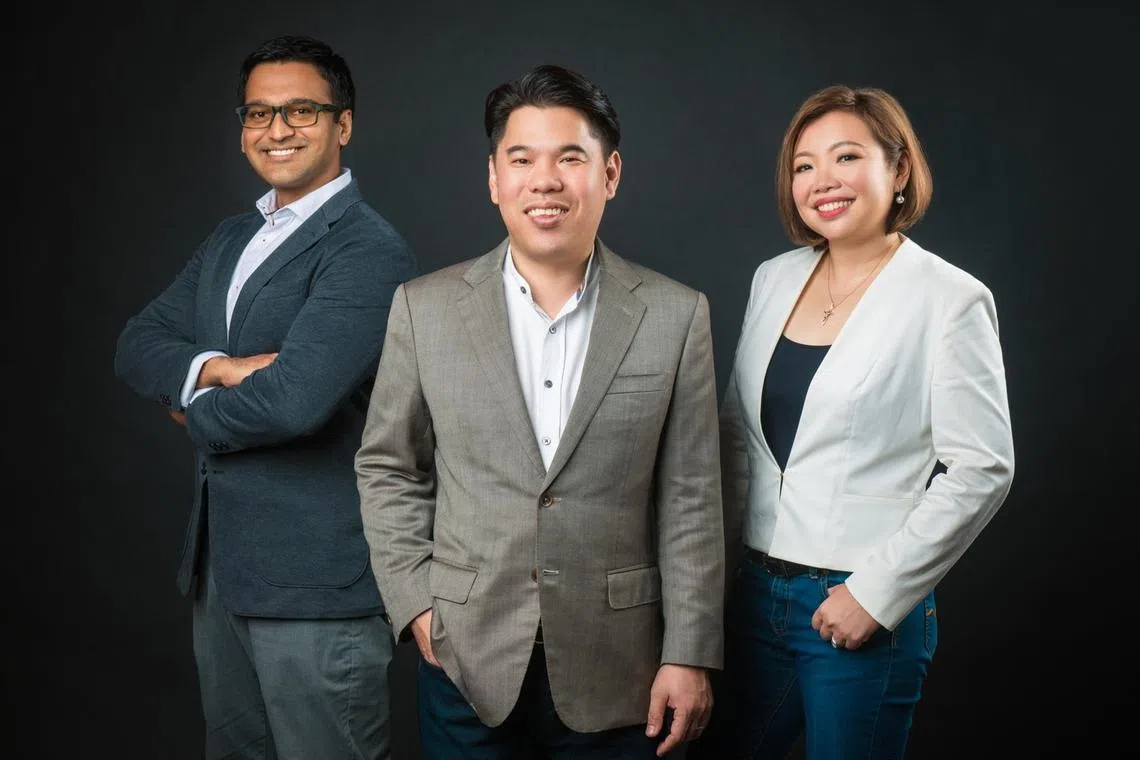AI boosts efficiency of LionsBot robot cleaners
The machines can plan their cleaning paths more efficiently, potentially halving the time taken, while a new object detection and recognition capability raises speed by up to 50%

[SINGAPORE] Since Singapore robotics company LionsBot adopted artificial intelligence (AI), it has seen increased productivity and reduced cleaning time.
The company produces autonomous commercial cleaning robots specialising in cleaning floors. Compared to traditional cleaning methods, LionsBot saves up to 90 per cent of water used.
LionsBot has deployed more than 3,500 robots across 30 countries, and has cleaned over 225 million square metres (sq m) of space. It uses an iterative development, with up to 10 prototype cycles built, tested and evaluated by internal and external parties in its robots.
Continuous feedback
Continuous feedback is also part of the development process, with prototypes tested at actual worksites. This allows LionsBot to glean insights by actual users on challenges faced. Hardware revisions and over-the-air software updates allow for the robots to be continually improved.
Now with AI, the cleaning robots can plan their cleaning paths more efficiently, using the shortest possible path. This reduces the time to clean a designated floor space by up to 50 per cent.
Planning too is also reduced by a factor of 200, with path planning taking 0.05 seconds now compared to 13.4 seconds without using AI for the same area.
Navigate Asia in
a new global order
Get the insights delivered to your inbox.
Even when obstacles are encountered while cleaning, with AI, the robot can instantly replan its route versus taking up to 15 seconds to do a recalculation without AI.
Besides path planning, AI models have also been used for adaptive perception for LionsBot’s robots. With the new object detection and recognition model, the cleaning robots have seen average cleaning speed increase by up to 50 per cent.
LionsBot’s robots can now more accurately detect and classify objects in their environment, and fine-tune their speed for collision avoidance. This allows the robots to increase their cleaning speed and acceleration without compromising safety.
SEE ALSO

Boosted by AI
Before the implementation of AI, a LionsBot robot would take up to 66 minutes to clean an entire level at about 350 sqm/hr. After the addition of AI, the same robot could clean the same area in 24 minutes, at 850 sqm/hr.
On the customer front, LionsBot’s chatbot has also received a boost from generative AI. It can now give users instant answers to questions on usage, care, maintenance and troubleshooting of the cleaning robots.
The design of LionsBot’s robots has also taken sustainability into consideration, with the use of durable and recyclable materials such as untreated aluminium alloys. Modular construction of the robots also allow for specific part replacements.
The LionsBot R&D department deeply integrates engineering and design functions to create innovative new forms with convention-breaking aesthetics, while achieving industry leading specifications in water capacity and cleaning widths.
This was primarily achieved through pushing the capability of rotational molding, creating hollow self-supporting structures that eliminate the need for metal frames, allowing the external shell of the robot to function as a water tank.
Interactive personality features
LIonsBot’s robots are also designed with interactive personality features to facilitate trust with users. This was purposefully done to create an emotional connection through design, with a large screen on the front of the machine displaying facial expressions.
These expressions serve to communicate the robot’s intention and status, such as when it is cleaning, blocked, or needs to be charged or refilled.
They reflect a range of emotions from focus, frustration to sadness to elicit responses from users.
Besides expressions, the robots also generate sounds to simulate communication of different emotions.
Building trust in robots is key in enabling collaborative robots in urban environments, the company believes.
Decoding Asia newsletter: your guide to navigating Asia in a new global order. Sign up here to get Decoding Asia newsletter. Delivered to your inbox. Free.
Copyright SPH Media. All rights reserved.









